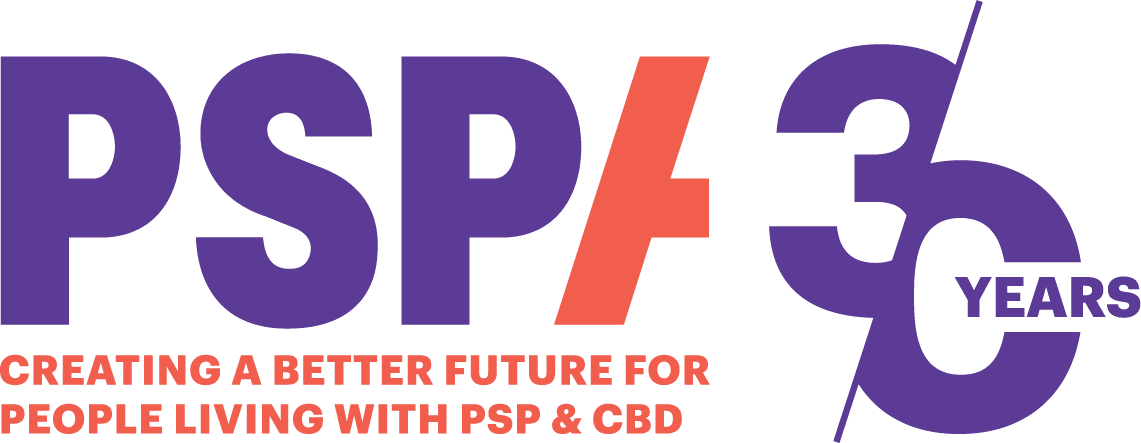Some common symptoms are listed below.
Not all of them will be relevant to you.
You can find information on managing symptoms in our Living with PSP section
Movement and Mobility
Difficulties in movement and balance are a common feature of PSP. Frequent falls which are often backwards. Movements may be very slow and your muscles may become stiff.
Behavioural Changes
PSP can lead to changes in behaviour or personality. For some people, these changes may be very subtle, whilst others may notice obvious changes.
Bladder and Bowel
As people become increasingly immobile as PSP progresses constipation, lack of bowel control and urinary problems may develop.
Swallowing Difficulties
Eating, drinking and swallowing difficulties are common in PSP and can occur fairly soon after diagnosis.
Coughing when eating or drinking is an indication that food or drink has ‘gone down the wrong way’ into the airway. If this occurs regularly, it can lead to chest infections or pneumonia.
Saliva and Oral Hygiene
Saliva helps break down food and protects the mouth from drying out and cracking. People living with PSP have a reduced swallow reflex, resulting in a build-up of saliva inside the mouth. Sometimes saliva can also be thick and difficult to swallow and some medication can cause saliva to dry up, resulting in a dry mouth.
Vision
People living with PSP may experience visual problems which can’t be corrected by glasses.
The main symptoms include:
• Double vision
• Tunnel vision – where the field of vision is reduced
• Blurred or misty vision
• Slow jerky eye movement
• Difficulty looking down
Speech and Communication
In PSP, areas of the brain controlling the movement of the tongue, lips and throat can impact on speech – making it slurred and difficult to understand.
There are three main types of speech problems:
• Voice sounding strained or harsh and speech is slow and slurred
• Speech becoming quiet, to the point of being difficult to hear and very fast. The voice may also sound croaky or breathy
• Speech sounds slurred and people can often struggle with longer words
Fatigue and Sleep
Many people living with PSP experience fatigue. This is an overwhelming feeling of tiredness, lack of energy and exhaustion.
Pain
Pain can be present as a direct result of PSP, or as part of any other conditions that you are experiencing.
Want to discuss your symptoms?
Please contact our information and support team if you would like to know more or have any questions about symptoms you may be experiencing.

